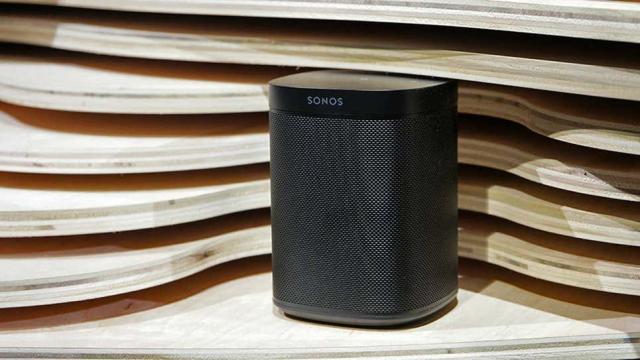Sonos just won a small victory in its battle against Google. According to the New York Times, a trade judge has ruled preliminarily in favour of the speaker maker, saying that Google should not import products that violate Sonos’s intellectual property.
Sonos had asked the United States International Trade Commission, or ITC, to block imports of several Google devices, including its smart speakers, Chromecasts, and Pixel smartphones because they allegedly infringe on Sonos patents.
The Google devices at issue are all manufactured overseas in China and shipped to the United States for sale. If the ITC rules against Google, it would mean that Google had violated the Tariff Act of 1930. That’s the law that prevents unfair competition through any imported goods that might have infringed on U.S. patents, trademarks, and copyrights.
Sonos hasn’t won its case yet. The ITC still has to accept or reverse the judge’s decision before anything is finalised. The commission’s hearing is scheduled for Dec. 13, and that’s the one that could lead to an import ban, which would then go into effect 60 days later. In other words, this holiday season people may be stocking up on Google collector’s items.
Eddie Lazarus, Sonos’s chief legal officer, said in a statement to the New York Times: “This decision reaffirms the strength and breadth of our portfolio, marking a promising milestone in our long-term pursuit to defend our innovation against misappropriation by Big Tech monopolies.”
Lazarus estimated that Google had infringed on more than 150 patents owned by Sonos.
Sonos had asked the ITC to block Google’s ability to import products back in January 2020, before the pandemic took hold. Months later, Google then filed a countersuit claiming Sonos had also infringed on its patents.
Sonos has had a busy week. Earlier this week, reports that Sonos was working on a hands-free digital assistant for controlling its devices began circulating. “Hey Sonos” — which is awfully similar to “Hey Google” — would exist alongside Amazon’s Alexa for those who want to opt in to a connected assistant not owned by Google. Sonos also has complaints against Amazon for its “predatory pricing.” The company has said that it would have pursued it if it could have managed a lawsuit against both Google and Amazon.
There is still time before an official ruling, but the outcome could have significant implications. Though it may seem like two major tech companies are at odds over who got to an idea first, there is a bit of a David and Goliath component to Sonos’ speakers versus Google’s. After all, the search giant’s portfolio is a behemoth compared to Sonos’ speaker business, which is why it’s currently in the hot seat for its anticompetitive practices.
